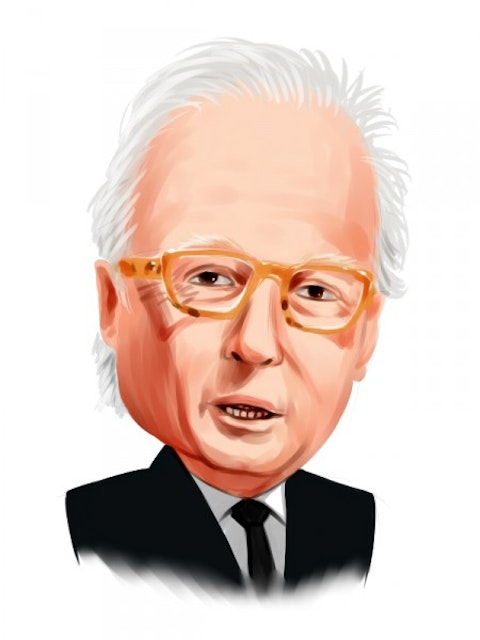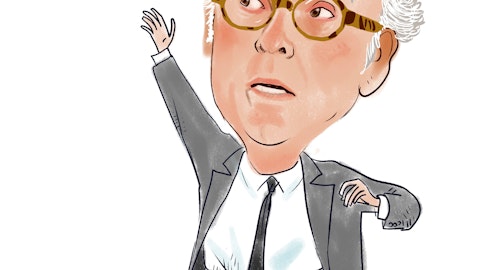A member of Abbott Laboratories (NYSE:ABT)’s Board of Directors, William Osborn, recently bought 10,000 shares of stock at prices between $33.80 and $33.90. He now owns a little over 34m000 shares of the stock, so this is a significant purchase in percentage terms. Studies show that insider purchases are bullish signs (see our analysis of studies on insider trading). We think that this is because an insider must be confident enough in the company’s prospects to ignore the benefits of diversification before buying the stock.
Abbott Laboratories is a $53 billion market provider of pharmaceuticals (including generics), diagnostic systems, and medical devices. Last quarter it experienced a 4% increase in revenue compared to the fourth quarter of 2011. With operating expenses up only slightly- thanks in part to a small reduction in R&D- operating income grew 16% from its levels a year earlier. While earnings were down, this was due to a large loss on extinguishment of debt that we think we can assume is in the best interests of Abbott Labs as well as non-recurring.
The stock trades at 9 times trailing earnings, though judging from analyst expectations it appears that is based on abnormally high net income in 2012. Consensus is for $2.02 in EPS this year, implying a current-year P/E of 17. We would say that from a value perspective that would be a decent multiple assuming moderate earnings growth over the next several years, and so we could see a value investor doing further research on the stock. While many pharmaceutical companies are thought of as income stocks, Abbott Laboratories is not quite optimal there: the beta is indeed fairly low at 0.5, but the dividend yield is less than 2%.
Billionaire Israel Englander’s Millennium Management increased its stake in Abbott Labs during the third quarter to a total of about 940,000 shares (find Englander’s favorite stocks). Citadel Investment Group, which is managed by billionaire Ken Griffin, reported a position of 1.6 million shares on its own 13F (check out Griffin’s stock picks). Orbimed Advisors, a healthcare focused fund run by Samuel Isaly and his team, was also buying the stock and closed September with 2.5 million shares in its portfolio (research more stocks that Orbimed was buying).
How does Abbott compare to similar companies?
Abbott’s peers include Johnson & Johnson (NYSE:JNJ), Merck & Co., Inc. (NYSE:MRK), Bristol Myers Squibb Co. (NYSE:BMY), and Teva Pharmaceutical Industries Ltd (NYSE:TEVA). There is a very wide spread of forward earnings multiples in this peer group. Teva appears the cheapest from that perspective, with the current pricing and analyst expectations actually giving it a five-year PEG ratio slightly less than 1, but Johnson & Johnson and Merck have forward P/Es in the 11-13 range and those are considerably larger companies. However, in each of these cases the sell-side’s expectations are generally for very strong earnings growth and so we would be careful of taking the attractive earnings multiples at face value. In terms of dividends, Merck and Bristol Myers Squibb stand out for yields of roughly 4%; betas are also low, and Bristol Myers Squibb in particular has almost no correlation with broader market indices at a beta of 0.1. Of course as might be expected for pharmaceutical companies exposure to the overall economy is limited in all cases.
It’s fairly easy to evaluate Abbott Labs from an income perspective: ignore it and instead focus on higher-yielding pharmaceutical companies such as Merck and Bristol-Myers Squibb. In terms of value we do think that the stock has some positive aspects, as revenue and operating income have been up and the P/E multiples look good. It certainly seems that it might be competitive with peers such as Teva, Johnson & Johnson, and Merck though those companies have high expected earnings growth that might make them worth looking into.
Disclosure: I own no shares of any stocks mentioned in this article.






